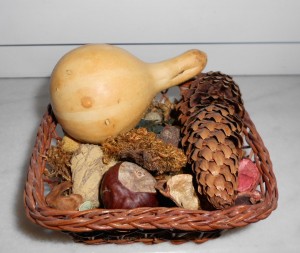Generosity is a wonderful feeling! Giving something from the bottom of your heart is truly up-lifting. If each and every one of us would do this, we would live in a better world, a land of milk and honey. You wouldn’t even covet thy neighbour’s things, since he might give them to you.
It’s all well and good, until the day comes when you must pick a gift.. And this day will come, there’s no way around it! Be it a birthday, a name day, a wedding anniversary, Christmas, Easter, St. Valentine’s Day, Mother’s day, Children’s Day, Teachers’ Day, Unknown Buyer’s day (fallen in the line of duty while looking for the perfect gift)…
How is it possible that something which is supposed to be a lovely experience so often becomes an excruciating one?! There are several causes for that. But before putting the blame on social pressures, on salesmen, on cruel fate – let’s take a look inside ourselves:
Do you know how to give a gift?
I didn’t say it would be an easy thing to do. Actually, it’s quite an art to pick the perfect gift for someone. (You know, the sort of gift that touches your soul, melts your heart, and of whom you will remember dearly.)
But this art can be learned. Even if you don’t reach the “master” level, your loved ones will appreciate your efforts and they will admire you. So, I propose you take up an “intensive course”.
On this page:
- 1 The Right Gift
- 2 The Gift of Attention
- 3 The Value of a Gift
- 4 One Gift Only
- 5 Gifts for the future, not for the present
- 6 The gift sends a message
- 7 Personalized gifts
- 8 An unforgettable gift is most of all an experience
- 9 The gift doesn’t necessarily have to be bought
- 10 How to give money
- 11 The way you offer your gift
The Right Gift
Nobody wants to give a bad gift, that would be nonsense.
No matter your good intentions, the reality is that sometimes you might give some… “uninspired” gifts. It happened to me as well. Actually, it happens to anyone at least once (even if they didn’t realize it). We call it life. All that you can do is reduce the number of these occurrences. You must understand the “game”.
Every gift has a story behind it. It would be ideal to have a good story to tell your grandchildren.
It has at least two characters: the one that gives the gift and the one that receives the gift. The story is about both of them.
A good gift must appeal to its recipient. But the truth is that it must appeal to you, the one who gives it, as well. Or at least, it shouldn’t repel you. Let’s say your grandpa likes to smoke a pipe, but you feel sick when you’re around tobacco smoke (and you also know that it’s not a healthy habit). In that case, you wouldn’t give him a pipe, no matter how much you love him (or maybe because of how much you love him).
The problem is when your preferences stand in your way. Maybe you are madly in love with the color red. But this doesn’t mean that everybody likes red. Some people prefer less gaudy colors. So, try to picture the story until the very end, not only at the beginning.
A study conducted in Great Britain shows that almost 20% of Christmas gifts end in the back of some closet, 22% are given to someone else, and 2% go straight to the bin. You are most likely to fail in your quest if you buy clothes or cosmetic products 1)”Take them back Santa! Unwanted Christmas presents total £2.1bn with average adult receiving two gifts they don’t want” by Larisa Brown, article published in The Daily Mail on the 26th of December 2012.
The Gift of Attention
There is, obviously, a feeling of satisfaction when getting what you wished for. So much so, that the majority of the people appreciate a gift that they particularly asked you for more than a surprise one. The studies prove this fact 2)”Give them what they want: The benefits of explicitness in gift exchange” – study conducted by Francesca Gino and Francis J. Flynn, published in Journal of Experimental Social Psychology on September 2011.
But the same studies show that those who give the gift don’t like to be told what to buy. In a way, it’s not nice to feel the pressure of being generous. Nor in being sent to do the shopping. Some of them choose a different thing on purpose, just to show that they are not under any obligation, but that they really care about this, and expect their gift to be more appreciated 3)”Give them what they want: The benefits of explicitness in gift exchange” – study conducted by Francesca Gino and Francis J. Flynn, published in Journal of Experimental Social Psychology on September 2011.
Nevertheless, a gift can be a double edged sword: it can prove itself to be either a great joy or an awfully big disappointment.
But, after all, it’s “the thought that counts”, isn’t it?
No matter how sad this may sound, the truth is that most of the people are left with a bad taste in their mouth after receiving a gift they don’t like. We know this from the saying “look not a gift horse in its mouth”, but it seems that everybody knows something about equine dentistry these days.
On the other hand, a well-appreciated gift is not the same as an unforgettable one. It depends on what you have in mind: do you want the recipient to be satisfied or impressed? In the first case, you can ask them what they want. In the second case, you must account for the risk of a surprise, in order for the impact to be massive.
Nevertheless, the previous observations are still useful. And so we find ourselves face to face with the ultimate challenge:
How do I choose a gift wanted by the recipient, without them explicitly telling me what they want?
All you have to do is pay attention. It doesn’t seem difficult, but the reality is that we don’t pay as much attention as we like to believe.
There are so many things that distract our attention, even if you do hear what someone wants as a gift, this piece of information gets lost among many others. So, if you want to become a master in gift giving, you have to do everything in an organized way.
As soon as you catch a gift idea for someone, you should write it down right away. You can use apps like Trello or Evernote. Both of them can be used on the computer, as well as on mobile devices (so you can note your ideas even on your phone). These are very useful and are also free, so you need nothing more than willingness to do it.
Of course, you must pay attention when someone dear to you says that they want something in particular. Even more important is to be prepared when they want to become something or to turn into something special.
Don’t do this only a few days before the event. The idea is to do it all the time. This “paying-attention” thing is a gift in itself. It’s very nice to see that someone remembers what you two discussed maybe months ago and that turned it into a gift.
The Value of a Gift
When you think about a gift, you take into serious consideration the amount of money you are willing to spend.
In an ideal world, this shouldn’t matter at all. And you probably don’t think much about it – if you give a gift to a stranger.
But when the gift is for a friend or a relative, you might be tempted to ask yourself what gift they gave to you on a previous occasion. And to adjust your budget accordingly.
Maybe it’s not very nice, but the sentiment of reciprocity does exist when it comes to gifts. Some people manage to keep it under control, and others are ready to break a relationship if they don’t receive something in exchange.
To some extent, it’s not a bad idea to take into consideration the material value of the gift. Those who make cheap gifts are seen as stingy. Those who make expensive gifts are not seen with better eyes either, especially when the situation asks for a gift in return, as is the case of Christmas. Sometimes, the extravagance may be interpreted as humiliating.
In conclusion, I don’t say that you should count every penny, but you shouldn’t turn yourself into a squanderer either. In fact, excepting the excesses, studies show that only the giver is concerned about the material value of the gift. In regards to what the recipient is concerned with, there wasn’t any correlation between monetary value and the level of satisfaction 4)”Money can’t buy love: Asymmetric beliefs about gift price and feelings of appreciation” – study conducted by Francis J. Flynn and Gabrielle S. Adams, published in Journal of Experimental Social Psychology on February 2009. All that matters is that the gift should be appreciated, not necessarily expensive.
One Gift Only
You set up a budget and you went “hunting” through the stores. You found a gift that appears to be just right. It’s not exactly cheap, but you still have some money left. But as you already planned to spend them all, why shouldn’t you buy a second gift, a smaller one?
Two gifts should make an impression twice as big. Quite a logical idea, isn’t it? Only that people in general are not as logical as you might tend to believe.
Studies show that people don’t appreciate the total sum spent on the gifts, but their mean value 5)”The Presenter’s Paradox” – study conducted by Kimberlee Weaver, Stephen M. Garcia and Norbert Schwarz, published in Journal of Consumer Research on October 2012. Thus, one single gift is by far more appreciated than if along with it you give a second cheaper one.
But don’t get it wrong: it’s still about one gift, not one object. A paddle and a ping-pong ball are taken as a whole, even if we have multiple objects. Just take care to wrap them all together, to emphasize the unity.
Little children are the exception when it comes to judging the price of a gift. They receive anything with equal pleasure, no matter the cost of it. And the more and diverse the gifts are, the better. (I really miss those times.)
Gifts for the future, not for the present
Every person has their own way of life. You think you know them, their habits, their hobbies – so you try to find a gift that matches their present needs.
Only, humans are living creatures, not statues. Humans change, they are in a constant state of becoming. When it coms to gifts, to know somebody means to know what they would like to become, not the way they are now.
People will appreciate it more if you give a gift that makes them discover a new path. In this way, you also give them hope.
Have you noticed that a child is not thrilled about useful gifts, such as notebooks or clothes? A child would rather have something that they don’t fully understand, because that makes them think about what it could actually be. A child is constantly looking ahead, trying to find new possibilities that haven’t yet been discovered.
And this remains within ourselves even when we grow up. We evolve thanks to what happens inside of us, but especially thanks to some door opened by an external event. Like a gift, for example.
The gift sends a message
No matter if it’s accompanied by a card or not, the gift itself is a message.
Have you ever wondered what message the gift you’re just about to choose sends? Most people haven’t. And here lies the core of the problem: if you don’t realize what you are “saying”, then you might “say” what you don’t intend to.
Have you ever felt like giving someone deodorant, but thinking that’s not quite all right? Even if it is, the message you’d send would be: “I hope you’ll have a nicer smell!” In other words: “The smell of your body right now sucks…”
Just replace the all-too asked question of “What should I buy?” with “What do I wish for them?” and pay attention to what the answer sounds like.
You write down a list of what your wishes for the recipient are (for the future!), then think about the gifts that would suit best the things you wrote down. You might even be overwhelmed by the number of ideas. And even if you don’t come up with the “perfect gift”, at least it would mean something.
Personalized gifts
A personalized gift might often seem like a good idea. It has the potential, but not just for anyone.
Sometimes, the personalization limits the function of an object. If you put your portrait on a T-shirt and offer it to a friend, it may be considered a nice thought at first. But what could they do with such a thing? If you are not Che Guevara, then probably they won’t be wearing it outside. They could sleep in it, but maybe it’s not a good idea to share the same bed, even in a symbolic way. So, the T-shirt will occupy the back of the closet for some years, and then it will end as a rag for wiping floors. Finally, something it would make itself useful for!
Mugs are more versatile things. You can keep them on some souvenir shelf, or you can always use them. And if they happen to get in your way, you can get rid of bad luck by breaking them. Maybe on New Year’s Eve!
(Generally speaking, it’s best that a gift shouldn’t have only one function. The easier it acquires a new function, the more it will be appreciated.)
Interesting to know is that a personalized gift can also be virtual. Especially for someone that is far away. For example, it can be a personalized video message (you can order it on Fiverr starting from 5 dollars).
An unforgettable gift is most of all an experience
When you want to give a gift, you almost always think about objects. They have to be found in a store, right? Wrong.
There are many kinds of gifts that are not real objects. (And I’m not thinking about “all your love”.) Here is a list with only a few of them:
- tickets to see their favourite artist or favourite team
- tickets to a special destination holiday
- a plane or a helicopter flight
- a subscription to a dance or art course (warning: a gym subscription may be misinterpreted)
- an online course which may open a new door (like the ones from Udemy – they come at a cheap price if you are not in a hurry)
- a surprise party
And the list can go on.
Numerous psychological studies have come to the conclusion that experiences bring a more lasting sense of happiness than the material goods 6)”But Will It Make You Happy?” by Stephanie Rosenbloom, article published in The New York Times on the 7th of August 20107)”The hidden cost of value-seeking: People do not accurately forecast the economic benefits of experiential purchases” – study conducted by Paulina Pchelin and Ryan T. Howell, published in The Journal of Positive Psychology issue n. 4/2014. And it’s not just about the experience itself, but the amount of time you wait before it actually happens 8)”Waiting for Merlot – Anticipatory Consumption of Experiential and Material Purchases” – study conducted by Amit Kumar, Matthew A. Killingsworth and Thomas Gilovich, published by Psychological Science on the 21st of August 2014, thanks to the memories they leave you with. It’s counterintuitive, because you think that an object lasts, while an experience passes. But the very unique character of that moment gives value to the experience. When you always have an object at your disposal, you tend to appreciate it less.
If you’re still in doubt, just think about it: on your death bed, would you say “Thank you, Lord, for the iPhone!” or rather “Thank you, Lord, for that unforgettable trip to Italy!” ?
In conclusion, experiences are something everyone wants. So why aren’t they offered more often? One of the main reason is that they aren’t seen as being traditional 9)”Mental Accounting and Gift Card Spending” – study conducted by Chelsea Helion and Thomas Gilovich, published in Advances in Consumer Research, volume 42. It seems odd to find under the Christmas tree nothing more than an envelope. In such cases, you can resort to a trick: put the trip tickets inside a traveling guide. Or the concert tickets into the artist’s biography. You get the idea.
If you still want to get a material gift (which is most likely), choose one that produces the most powerful experience when used, the most diverse and pleasant one. Keep that in mind especially when it’s about toys or games (that’s why Lego and play dough are so popular).
Even more, you can turn the act of giving itself into an unforgettable experience. Christmas is a holiday loved by everybody because it’s a whole experience in itself – from the scent of the pine tree and the cookies, to the Christmas carols and Santa Claus. But you can always do something special: you can make up a story starting from the gift, you can wrap it up in a funny or in a surprising way, you can dress up with something (especially for your boyfriend, if you know what I mean), etc.
Experiences give birth to emotions. And emotions give birth to memories. In the end, all we have left are the beautiful memories that we have created. They are the ones who shape us from inside.
The gift doesn’t necessarily have to be bought
When you want to give somebody a gift, the first impulse is to buy it. But it doesn’t have to be like that – you can have it handmade, by yourself!
You can paint an aquarelle painting, you can create jewelry with materials you have at hand. You can carve a wooden toy, or crochet a scarf.
You’ll tell me that, in order to do these, you need talent and skill. That’s right. But there are more approachable variations as well, and with the same effect.

The most impressive gift that I’ve ever received is from two good friends: a “bottle stranded on a beach” (with grains of sand discreetly glued to it), which has a little roll of “old paper” (a bit burnt) inside, on which is written what Queen Isabella told to Christopher Columbus:
Sail straight ahead, and if the land you seek for does not exist yet, rest assure that God will make it as to repay you for your boldness.

And the one that I cherish most: a little basket in which my wife-to-be put moss and lichens, twigs and pine cones, chestnuts, a squash, and little leaves and stones picked up on some mountain trail.
Once, I gave to our little girl, who was 2 and a half at that time, an origami bird. It’s true that the process of making it lasted longer than it looked like in the Youtube video (there are plenty of them), but it was still nice.
Anyone can craft things like these. It can be a memory-album (either with old photos and other such things or a digitally printed one), a funny bookmark, a collection of culinary recipes (for example, easy to make recipes), gingerbread in the shape of a favourite animal… The ideas are endless, and the Internet provides you the instructions for everything.
The only problem is that such things require time. And modern man is always on the run. On the other hand, this could make the gift even more precious. You’re offering a piece of your life. And it represents you, thus creating a stronger bond between you and the person to whom you give it 10)”Give a piece of you: Gifts that reflect givers promote closeness” – study conducted by Lara B. Aknin and Lauren J. Human, published in Journal of Experimental Social Psychology on September 2015.
When you personally create a gift, you offer yourself an experience. The result is the bearer of that experience. You no longer give a lifeless gift, but one filled with emotions. And that is easily perceived.
How to give money
There are some particular cases in which you want to give a gift to someone, but you have no idea whatsoever. You were planning to spend some money anyway, so why not give it to them directly?
If the recipient is the one who just gave you your salary, then that’s not such a good idea. And especially not if that someone is a person who wouldn’t even notice if he lost some money while walking down the street.
But there are plenty of cases in which you can do it. Even more, it might be a good idea 11)”Give them what they want: The benefits of explicitness in gift exchange” – study conducted by Francesca Gino şi Francis J. Flynn, publicat în Journal of Experimental Social Psychology on September 2011. It’s a sure thing that it will do good. And if you were not planning to give a significant gift, at least the satisfaction is well assured.
Still, it’s rather inelegant to put the money straight into somebody’s hand (it’s actually rude in countries such is Japan). They must be given in an envelope. And if you have the envelope, you might want to put a card in it too.

Even when you give money, you should let your imagination run wild. For example, you can duck-tape a pile of banknotes to the end of a napkin and put all of them in a napkin box. When the happy person will pull out the napkin, the money will come out. (That’s a wonderful gift for someone who was born on the 1st of April.)

It’s even simpler for the kids. You make some rolls of coins and you wrap them as candies. They are even low in calories.
The modern alternative is the gift card. If it is from an online store, the advantage is that it can be a easy solution for a long-distance gift. The studies have shown that although the money from a gift card can be used to buy anything from that particular store, usually those who receive it feel obligated to stick to its purpose and to use the card to indulge themselves 12)”Mental Accounting and Gift Card Spending” – study conducted by Chelsea Helion and Thomas Gilovich, published in Advances in Consumer Research, volume 42.
A way to transform such a common gift into an experience is to make a tradition out of it. For example, by giving it every year, on the same occasion, the exact same amount of money (which doesn’t necessarily to be a round sum, it can have a particular meaning).
The way you offer your gift
Those who work in the marketing domain know how often it happens for a brand to produce a good product, but to fail when it comes to making the potential clients see its benefits.
The psychologists’ studies show that something similar happens when we offer a gift 13)”Exaggerated, mispredicted, and misplaced: when “it’s the thought that counts” in gift exchanges” – study conducted by Yan Zhang and Nicholas Epley.
You beat your brains out, you make lists with ideas, you wander around shops, you find a gift that you believe is the right one, you turn it all-over, you outline your pros, you put your heart in the whole story, you even want to make that someone happy and… When you’re facing the person in question, what do you do? You shyly give them the bag, you say “Happy Birthday”, a little kiss or two on the cheek and that’s that.
The problem with this scenario is that what you think you offer is not the same as what the recipient thinks he receives.
Weave the story of your gift. If it’s something more special, then there must be some interesting story to tell about it. If it’s something more practical, maybe you have some recommendations to give. Did you choose the color for a particular reason? Did the idea of the gift originate from an experience you both went through? Do you think the gift brings them a little something to their life? What does that gift mean to you?
It’s a wonderful thing if you manage to make that person see that you care, that you are not just a gift-delivery guy.
It’s proven that such a story about the gift raises significantly the level of its appreciation 14)”Exaggerated, mispredicted, and misplaced: when “it’s the thought that counts” in gift exchanges” – study conducted by Yan Zhang and Nicholas Epley. Half of the gift is just its story.

If it’s not obvious: the gift should be beautifully wrapped. After all, it’s something very precious (even if it didn’t cost much). You can even make an experience out of it. For example, you know that joke in which a huge box contains a small gift (but one which is much desired, otherwise it could look like irony).
It really does matter how you offer your gift. Imagine that someone throws a box at you and says: “Take your gift, dude!” Of course, I’m exaggerating, but what I’m trying to say to you is that the right way is the other way around. You have the chance – quite rare – to make that “happy” person feel like you care about them. Use it!
Every such occasion when gifts are being offered gives you a chance to make a person happy. Maybe even change their life.
You won’t make it every single time. It’s harder than it looks like. But assuming your failure is part of the generosity. What’s important is to learn from your mistakes.
Anyway, look to these things with carefree and humor! After all, It’s a celebration day, not the end of the world!
(I hope you enjoyed this article which I offer to you. It’s ok, you don’t need to say anything… I saw that you skipped some paragraphs. And I, who didn’t even sleep just to write it for you… you break my heart. It’s already minced meat, ready for meatballs. With onion and garlic. And a bit of dill… What do my eyes full of tears (from cutting the onion) see? You want to share it!? So you did like it! There is a God!)
A series of little-known facts about Black Friday, which include tricks that sellers do and smart tips to make sure you really profit from the sales
All the information you need to know about buying Lego sets, with some important tips.
References
| ↑1 | ”Take them back Santa! Unwanted Christmas presents total £2.1bn with average adult receiving two gifts they don’t want” by Larisa Brown, article published in The Daily Mail on the 26th of December 2012 |
|---|---|
| ↑2 | ”Give them what they want: The benefits of explicitness in gift exchange” – study conducted by Francesca Gino and Francis J. Flynn, published in Journal of Experimental Social Psychology on September 2011 |
| ↑3 | ”Give them what they want: The benefits of explicitness in gift exchange” – study conducted by Francesca Gino and Francis J. Flynn, published in Journal of Experimental Social Psychology on September 2011 |
| ↑4 | ”Money can’t buy love: Asymmetric beliefs about gift price and feelings of appreciation” – study conducted by Francis J. Flynn and Gabrielle S. Adams, published in Journal of Experimental Social Psychology on February 2009 |
| ↑5 | ”The Presenter’s Paradox” – study conducted by Kimberlee Weaver, Stephen M. Garcia and Norbert Schwarz, published in Journal of Consumer Research on October 2012 |
| ↑6 | ”But Will It Make You Happy?” by Stephanie Rosenbloom, article published in The New York Times on the 7th of August 2010 |
| ↑7 | ”The hidden cost of value-seeking: People do not accurately forecast the economic benefits of experiential purchases” – study conducted by Paulina Pchelin and Ryan T. Howell, published in The Journal of Positive Psychology issue n. 4/2014 |
| ↑8 | ”Waiting for Merlot – Anticipatory Consumption of Experiential and Material Purchases” – study conducted by Amit Kumar, Matthew A. Killingsworth and Thomas Gilovich, published by Psychological Science on the 21st of August 2014 |
| ↑9, ↑12 | ”Mental Accounting and Gift Card Spending” – study conducted by Chelsea Helion and Thomas Gilovich, published in Advances in Consumer Research, volume 42 |
| ↑10 | ”Give a piece of you: Gifts that reflect givers promote closeness” – study conducted by Lara B. Aknin and Lauren J. Human, published in Journal of Experimental Social Psychology on September 2015 |
| ↑11 | ”Give them what they want: The benefits of explicitness in gift exchange” – study conducted by Francesca Gino şi Francis J. Flynn, publicat în Journal of Experimental Social Psychology on September 2011 |
| ↑13, ↑14 | ”Exaggerated, mispredicted, and misplaced: when “it’s the thought that counts” in gift exchanges” – study conducted by Yan Zhang and Nicholas Epley |
Did you like it? Now it’s your turn. You’ll make us very happy if you share this article with your friends:
And don’t forget to let us know what you think – we are really interested in your thoughts on this!






